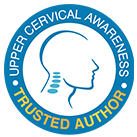upper cervical blogdr. blom Work Specifically in the neck and neck related disorders?
|
|
As a chiropractor, Dr. Grayson Blom often hears recurring concerns from patients diagnosed with Meniere's disease. Notably, many wonder how long their condition will last or how long they must wait to experience Boise ID vertigo relief. Some studies found that Meniere's can persist for up to 41 years. Researchers also found that there are distinct stages that can indicate how far the condition has progressed. Are you familiar with these phases? If not, we strongly suggest going through our blog post and learning how you can potentially achieve lasting Boise ID. vertigo relief. Stages of Meniere's Disease Meniere's disease is a condition that affects one's inner ear and causes vertigo (uncontrollable spinning), tinnitus, and hearing loss. Hearing loss in Meniere's disease occurs due to an accumulation of fluid and changes in pressure in the inner ear. Hearing loss can affect low-frequency and high-frequency sounds, making speech sound muffled or slurred. These symptoms tend to worsen over time as a patient goes through the different stages. Let’s take a closer at the phases of Meniere’s disease below. Early Stage - Fullness in the ear, tinnitus, and mild vertigo As mentioned earlier, the primary symptoms of Meniere's disease are hearing loss, tinnitus (ringing in your ear), and vertigo. While these symptoms can vary in severity from person to person, they most often start mild and slowly progress over time. The first symptom you may experience is a fullness or pressure in your ear. People who have had Meniere's disease describe this sensation as feeling like their ears are clogged with water. This sense of fullness can also come with tinnitus – a symptom that causes you to hear ringing sounds in your ear. These initial signs of Meniere's disease usually affect only one ear. But sadly, some people experience the same symptoms on both sides later on. Besides the health concerns we listed above, we suggest looking out for other signs of Meniere's disease, including:
Phase 1 - Vertigo lasting longer than 20 minutes but no more than 24 hours with fluctuating hearing loss The first phase of Meniere’s disease rarely cause complete hearing loss. However, it can set off vertigo episodes that can last anywhere from 5 to 20 minutes. If you have a vertigo episode during this specific stage, it is essential to rest, preferably in a quiet and darkened room. If you notice hearing problems, you may consult with your doctor about diet modifications and medications needed to control or lessen the severity of your symptoms. By doing so, you can gauge the level of patient care you need and identify which source of Boise ID vertigo relief options you should try. To learn more about the connection between head and neck injuries and vertigo, download our complimentary e-book by clicking the image below. Phase 2 - Attacks of vertigo lasting longer with increased hearing loss
As the disease progresses, your vertigo attacks will last longer than 24 hours, and you find yourself experiencing dizziness episodes for days, not just hours. You may also begin to experience fluctuating hearing loss and increasing tinnitus. This makes MD patients feel more anxious, depressed, and exhausted because of their symptoms. This specific stage requires immediate intervention to prevent the symptoms from getting worse. Some of the common interventions used at this point include the following:
Phase 3 - No attacks of vertigo but progressive hearing loss The absence of vertigo attacks typically characterizes the third phase. However, it would help if you still be wary of milder or shorter vertigo episodes. Progressive hearing loss continues that can lead to total deafness in your affected ear. The dizziness associated with this phase is not as intense as in previous phases and may last for a couple of days instead of only a few minutes. Phase 3 may continue for years without further progression or linger for the rest of your life. Most Recommended Boise ID Vertigo Relief: Upper Cervical Chiropractic When you have Meniere's disease, you likely experience vertigo and loss of hearing. And it would help if you reached out to an upper cervical doctor for Boise ID vertigo relief. Upper cervical chiropractic can help manage not just the progression of this condition but also the debilitating symptoms that come with it. The primary objective of chiropractic is to improve the function of the inner ear through spinal correction and suggest some lifestyle changes to work hand-in-hand with the adjustments. Dr. Grayson Blom is an Idaho upper cervical doctor who leads the Upper Cervical Health Centers Boise. Initially, Dr. Blom was also a patient who complained about recurring health concerns until he found chiropractic care. Since he knows firsthand the plights and pains caused by misalignments and unhealthy spine structure, he and his team wish to share their practice to help people achieve lifetime health and wellness in the most natural way possible. So if you are looking for a clinic or chiropractor that knows what you are going through and sincerely wants to help you recover and better manage your condition for a happier life, visit Upper Cervical Health Centers Boise. You may schedule your appointment with us by calling (208)-559-0541 or filling out our online form. To schedule a consultation with Dr. Blom, call 208-559-0541, or just click the button below.
0 Comments
Your comment will be posted after it is approved.
Leave a Reply. |
Dr. BlomUpper Cervical Chiropractor Categories
All
Archives
February 2024
|





 RSS Feed
RSS Feed


